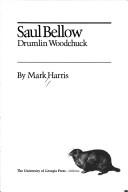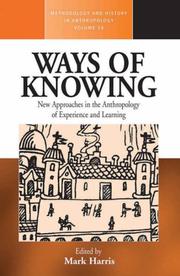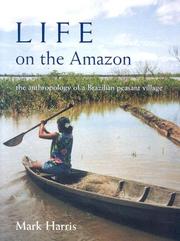| Listing 1 - 10 of 42 | << page >> |
Sort by
|

ISBN: 0820305294 Year: 1980 Publisher: Athens University of Georgia Press
Abstract | Keywords | Export | Availability | Bookmark
 Loading...
Loading...Choose an application
- Reference Manager
- EndNote
- RefWorks (Direct export to RefWorks)
Bellow, Saul --- Novelists, American --- -American novelists --- Biography --- Harris, Mark --- Belo, Sol --- Pei-lou, So-erh --- Bellou, Soul --- Bellows, Solomon --- Беллау, Сол --- בלו, סול --- בלו, ס. --- ソール.ベロー --- Bellou, Sol --- Bellow, Saul. --- Harris, Mark, --- -Biography --- Atkins, Jack, --- Ingram, Willis J., --- Martha, Henry, --- Washington, Alex, --- Wiggen, Henry W., --- Wright, Jack R., --- Finkelstein, Mark Harris,
Book
Year: 1974 Publisher: New York, N.Y.
Abstract | Keywords | Export | Availability | Bookmark
 Loading...
Loading...Choose an application
- Reference Manager
- EndNote
- RefWorks (Direct export to RefWorks)
Book
Year: 1973 Publisher: New York : Bantam Books,
Abstract | Keywords | Export | Availability | Bookmark
 Loading...
Loading...Choose an application
- Reference Manager
- EndNote
- RefWorks (Direct export to RefWorks)

ISBN: 9781845453640 1845453646 1789204151 Year: 2007 Volume: . 18 Publisher: New York ; Oxford : Berghahn Books,
Abstract | Keywords | Export | Availability | Bookmark
 Loading...
Loading...Choose an application
- Reference Manager
- EndNote
- RefWorks (Direct export to RefWorks)
That there are multiple ways of knowing the world has become a truism. What meaning is left in the sheer familiarity of the phrase? The essays here consider how humans come to know themselves and their worlds. Should anthropologists should seek complexity or simplicity in their analyses of other societies? By going beyond the notion that a way of knowing is a perspective on the world, this book explores paths to understanding, as people travel along them, craft their knowledge and shape experience. The topics examined here range from illness to ignorance, teaching undergraduates in Scotland to learning a Brazilian martial arts dance, Hegels concept of the dialectic to the poetry of a Swahili philosopher. A central concern is how anthropologists can know and write about the silent, theconcealed and theembodied.
Anthropology. --- Knowledge and learning --- Experience. --- Anthropologie --- Savoir et érudition --- Expérience --- Knowledge and learning.
Book
ISBN: 9780399562242 Year: 2021 Publisher: New York : Penguin Press,
Abstract | Keywords | Export | Availability | Bookmark
 Loading...
Loading...Choose an application
- Reference Manager
- EndNote
- RefWorks (Direct export to RefWorks)
"A magnificent biography of one of the most protean creative forces in American entertainment history, a life of dazzling highs and vertiginous plunges--some of the worst largely unknown until now--by the acclaimed author of Pictures at a Revolution and Five Came Back. Mike Nichols burst onto the scene as a wunderkind without parallel: while still in his 20's, he was half of a lucrative hit improv duo with Elaine May that was the talk of the country. Next he directed four hit Broadway plays, picking up the Best Director Tony for three of them, and by his mid-30's the first two films he directed, Who's Afraid of Virginia Woolf and The Graduate, were the highest-grossing movies of 1966 and 1967 respectively, and The Graduate had won him an Oscar for Best Director. Well before his 40th birthday, Nichols lived in a sprawling penthouse on Central Park West, drove a Rolls Royce, collected Arabian horses, and counted the likes of Jacqueline Kennedy, Stephen Sondheim, Richard Avedon and the Aga Khan as good friends. Where he had arrived is even more astonishing given where he began: born Igor Peschkowsky to a Jewish couple in Berlin in 1931, he and his younger brother were sent alone to America on a ship in 1939. Their father, who had gone ahead to find work, was waiting for them; their mother would follow, in the nick of time. His name changed by his father to "Michael Nichols," the young boy caught very few breaks: his parents were now destitute, and his father died when Mike was just 11, leaving his mentally unstable mother alone and overwhelmed. Perhaps most cruelly, Nichols was completely bald: as a small child an allergic reaction to an immunization shot had caused total and permanent hair loss. His parents claimed they could not afford to buy him even a cheap wig until he was almost in high school. Mark Harris gives an intimate and even-handed accounting of success and failure alike; the portrait is not always flattering, but its ultimate impact is to present the full story of one of the most richly interesting, complicated, and consequential figures the worlds of theater and motion pictures have ever seen. It is a triumph of the biographer's art"--

ISBN: 0197262392 Year: 2000 Publisher: Oxford ; New York : Published for the British Academy by Oxford University Press,
Abstract | Keywords | Export | Availability | Bookmark
 Loading...
Loading...Choose an application
- Reference Manager
- EndNote
- RefWorks (Direct export to RefWorks)
Ethnology --- Fishing villages --- Peasants --- Caboclos (Brazilian people) --- Social change --- Anthropologie sociale et culturelle --- Villages de pêcheurs --- Paysannerie --- Caboclos --- Changement social --- Óbidos (Brazil) --- Óbidos (Brésil) --- Social life and customs. --- Moeurs et coutumes
Book
ISBN: 9781032456850 9781032480978 9781003387398 Year: 2024 Publisher: Abingdon Routledge
Abstract | Keywords | Export | Availability | Bookmark
 Loading...
Loading...Choose an application
- Reference Manager
- EndNote
- RefWorks (Direct export to RefWorks)
"God and the Book of Nature focuses on developing theological views of nature and of the natural sciences in light of the recent theological turn in science-and-religion scholarship. Centred around the Book of Nature metaphor, it brings together contributions by theologians, natural scientists, and philosophers based in Europe and North America. They provide an exploration of complementary (and even contesting) readings of the Book of Nature, particularly in light of the vexing questions that arise around essentialism and unity in the field of science and religion. Taking a more experimental and open-ended approach, the volume does not attempt to unify the readings into a single 'plot' that defines the Book of Nature, still less a single 'theology of nature', although it follows some organising principles that reflect different hermeneutical stances. Overall the book embraces a more constructive theological attitude towards the modern sciences and represents a significant and original contribution to the research literature. It is particularly relevant for theologians and philosophers interested in the relationship between science and religion"--

ISBN: 9781789204155 1789204151 9781845453640 1845453646 Year: 2007 Publisher: New York
Abstract | Keywords | Export | Availability | Bookmark
 Loading...
Loading...Choose an application
- Reference Manager
- EndNote
- RefWorks (Direct export to RefWorks)
Book
ISBN: 1282520016 9786612520013 0810863332 9780810863330 9780810868175 0810868172 Year: 2009 Publisher: Lanham Scarecrow Press
Abstract | Keywords | Export | Availability | Bookmark
 Loading...
Loading...Choose an application
- Reference Manager
- EndNote
- RefWorks (Direct export to RefWorks)
The book provides a complete overview of Unitarian and Universalist history all over the world. While the emphasis is on North America, many listings provide an adequate background for the development of the Unitarian faith in Europe as far back as the 16th century. Other parts of the world are included as well with biograpihcal, theological and geographical listings. Most of the book consists of alphabetical listings of all major leaders of the movements, many famous person associated with the movement, important events, and histories of institutions.
Unitarian Universalist churches --- Christian sects --- History --- Unitarian Universalist Association --- American Unitarian Association --- Universalist Church of America --- UUA --- U.U.A. --- Unitarian Universalist Association of Congregations in North America --- Unitarian Universalist Association of Congregations
Book
ISBN: 9781472417282 1472417283 9781315604244 9781317069591 9781317069607 9780815347200 1472417291 1472417305 Year: 2015 Publisher: Farnham, Surrey: Ashgate,
Abstract | Keywords | Export | Availability | Bookmark
 Loading...
Loading...Choose an application
- Reference Manager
- EndNote
- RefWorks (Direct export to RefWorks)
Imagination --- Creative ability --- Imagination. --- Creative ability. --- #SBIB:39A2 --- Creativeness --- Creativity --- Ability --- Creation (Literary, artistic, etc.) --- Imagery, Mental --- Images, Mental --- Mental imagery --- Mental images --- Educational psychology --- Intellect --- Psychology --- Reproduction (Psychology) --- Antropologie: methoden en technieken
| Listing 1 - 10 of 42 | << page >> |
Sort by
|

 Search
Search Feedback
Feedback About UniCat
About UniCat  Help
Help News
News